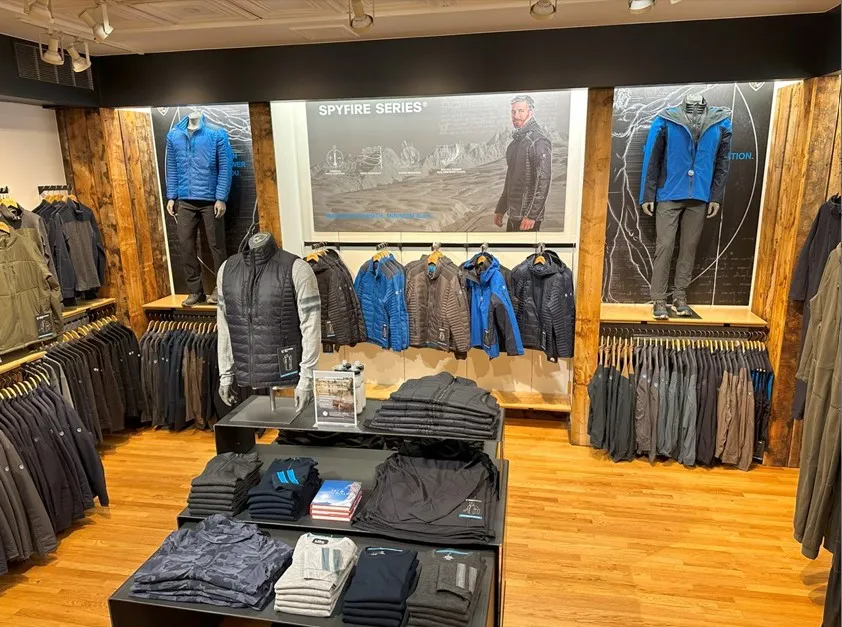Auto stores trade owners at rapid pace

Auto dealerships across Colorado are being purchased at an unprecedented rate, reflecting a national trend toward consolidation in automobile retailing that has impacted multiple local dealerships.
About 25% of Colorado’s 260 dealership locations have either been sold this year or are under contract to sell, the highest percentage in history, according to Tim Jackson, president and CEO of the Colorado Automobile Dealers Association.
Less than 5% of dealerships change ownership in a normal year, Jackson said.
“The industry overall has seen consolidation on a growing scale, but this year it’s kind of off the charts,” he said.
Colorado sales growth is part of a national jump in dealership sales, according to Erin Kerrigan, founder and managing director of Kerrigan Advisors, a nationally recognized consulting firm that advises auto dealership groups on operating, growing and selling their businesses.
“2021 will be a record year for dealership transactions,” Kerrigan said. “Through the first nine months of the year, transaction activity is up 20%. Keep in mind that’s after 2020, which was up about 20% as well. Since the pandemic, the consolidation of auto retail has gone into super drive.”
Sales transactions have been completed for 57 Colorado dealerships, with another eight under contract to sell. The completed transactions include five Boulder County locations, four Larimer County dealerships and six Weld County operations. (See related story for list of dealerships sold this year.)
While Texas and Florida have the highest growth in dealership transactions, Colorado is in the top quartile thanks to the state’s ongoing population growth.
“Colorado is one of the highest demand states in the country for auto dealerships largely due to the growth in population in the state,” Kerrigan said. “What our firm finds is that buyer demand is highly correlated with (population) growth and so markets with this amount of growth see much more transaction activity.”
An attractive investment
Automobile dealerships are an attractive investment opportunity for multiple reasons.
Kerrigan said car dealerships have a “uniquely diversified” business model with multiple revenue streams from selling new and used cars, selling parts, providing maintenance services and financing purchases. That business model has resulted in an ability “to really weather every storm, including the pandemic, very successfully.”
While margins for new car sales are relatively thin, 2-3% per sale, according to Jackson, this year’s high volume of sales should bring record profits for Colorado dealerships.
Kerrigan’s national data shows that dealership earnings are projected to be 168% higher this year than 2019 profits.
The many disruptions that COVID-19 has brought to normal life have helped fuel demand for vehicles at a time when cars are in relatively short supply.
“Demand is driven by consumer savings and a renewed desire for personal mobility over public transportation,” Kerrigan said. “Consumers’ renewed love affair with the freedom associated with your own vehicle to go on vacation and to live farther away from your office because you can work from home has created an environment where the consumer has a very strong desire for vehicles and has the access to capital both from savings and from very low interest rates.”
Like other retail operations, auto dealerships have had supply chain problems, specifically a lack of inventory. New car manufacturing has been hobbled by problems with getting the computer chips so integral to modern vehicles, so fewer new cars are being shipped to dealerships.
Jackson said that stores that normally would have 1,000 to 1,200 autos sitting on their lots may now have only 40-60 vehicles on their properties. He recalled a dealer sharing an experience with a customer in the showroom shopping for a specific model of Toyota. Since the dealer didn’t have any of that model on the lot, the salesman sat in the showroom showing the customer website images of the car.
“Then a funny thing happened,” Jackson said. “About that time a truck rolled by the big plate glass windows bringing in the next seven cars for inventory and the lady who was looking for the car turned around and saw the truck coming onto the lot, saw the car she wanted to buy, and said, ‘There’s one now. Can I buy that one?’ and she literally bought the car off the truck.”
Many reasons to sell
Many if not most auto dealerships started as a local family business. Some have maintained family control and ownership over multiple generations.
“We have dealerships in Colorado that are in their fourth generation in the same family, and they’ve never changed owners and it doesn’t look right now like they’re intending to,” Jackson said.
According to statistics from AARP, some 10,000 Baby Boomers reach age 65 every day, a demographic trend that is reshaping many aspects of American society, including family businesses.
“(Some) current owners, by which I mean dealer principals and partners, are getting up there in years, and they’re just looking at is it better, from a transitional standpoint, is it better to pass this on to family members,” Jackson said. “And sometimes the dealership family doesn’t have anybody who wants to take it on for the next generation. If that’s the case, there’s more incentive to go ahead and sell it, and I think we’re seeing that in a few of these instances.”
Approaching such a dealership about selling can solve the family’s need for a succession plan while meeting a potential buyer’s desire to grow in the Denver market, according to David Hult, president and CEO of Asbury Automotive Group, a Georgia-based, publicly traded dealership group.
Given the growing valuations of auto dealerships, selling a dealership could provide such a family with substantial resources for investment in new opportunities.
“Dealers are making a tremendous amount of money and the valuations have risen tremendously,” Kerrigan observed. “So certain dealers are deciding the time is right to sell in part because they see a landscape in the future for auto retail that may be quite different than the past. There is a view that digital retailing will become a much more prominent and dominant part of the retailing experience. For a traditional family-owned business, they may not be interested in the investment required or the restructuring required for their business to operate in a much more digital sales process.”
Kerrigan said that trying to stay small and local is “not a very good strategy” in this evolving situation, especially for dealerships in major metropolitan areas.
“Many dealers feel they either need to commit to tremendous growth and be part of the consolidation or they should consider a plan for an exit,” she said. “If you want to grow, you have to spend a lot of money. You have to decide you’re ready to double down on this industry.”
Impacts of ownership changes
Dealership groups across the country are following that philosophy and getting very big very fast.
A prime example is Asbury, which has purchased 40% of the 57 Colorado dealerships sold so far this year. That deal included all 12 Larry H. Miller dealerships in Colorado.
According to the Colorado Automobile Dealers Association, the state’s 260 dealerships provide jobs to more than 43,000 people throughout the state, representing $2.5 billion in total compensation to Colorado residents in 2019. It’s likely those employment statistics will not be impacted much by the spate of dealership sales.
While ownership changes in other retail segments often result in cost-cutting measures aimed at reducing duplicated services, that usually doesn’t happen with auto dealerships. Employees at all levels usually retain their positions. That’s because the primary asset of a dealership is its team of employees, according to Hult.
“We believe people are your most important asset,” he said. “There’s a lot of tenured people in these dealerships who are used to doing business a certain way and to go in there and be disruptive and change things would be a big mistake and wouldn’t be something we have done.
Local auto dealerships sold in 2021
- Boulder
- Gebhardt Volkswagen sold to Fred Emich IV; name changed to Emich VW Boulder
- Boulder Hyundai sold to Foundation Automotive; name changed to Foundation Hyundai of Boulder
- Larry H. Miller Toyota Boulder sold to Asbury Automotive Group; no name change
- Pollard Jeep sold to Fowler Auto Group; name changed to Fowler Jeep of Boulder
- Longmont
- Ehrlich I-25 Kia sold to Fowler Auto Group; name changed to Fowler I-25 Kia
- Courtesy Mazda sold to McDonald Automotive; no name change
- Stevinson Hyundai sold to Asbury Automotive Group; no name change
- Fort Collins
- Spradley Barr Ford sold to Ken Garff Automotive Group; name changed to Ken Garff Ford of Fort Collins
- Spradley Barr Mazda sold to Crossroads Automotive; name changed to 2Mazda
- Frederick
- Stevinson Lexus of Frederick sold to Asbury Automotive Group; no name change
- Greeley
- Spradley Barr Ford sold to Ken Garff Automotive Group; name changed to Ken Garff Ford of Greeley
- Greeley Subaru sold to Asbury Automotive Group; name changed to Mike Shaw Subaru of Greeley
- Ehrlich Toyota Greeley sold to McDonald Automotive Group; name changed to McDonald Toyota
- Loveland
- Co’s BMW sold to John Elway Dealership Group; name changed to BMW of Loveland
- Mini of Loveland sole to John Elway Dealership Group ; no name change
Auto dealerships across Colorado are being purchased at an unprecedented rate, reflecting a national trend toward consolidation in automobile retailing that has impacted multiple local dealerships.
About 25% of Colorado’s 260 dealership locations have either been sold this year or are under contract to sell, the highest percentage in history, according to Tim Jackson, president and CEO of the Colorado Automobile Dealers Association.
Less than 5% of dealerships change ownership in a normal year, Jackson said.
“The industry overall has seen consolidation on a growing scale, but this year it’s kind of off the charts,” he said.
Colorado sales growth is part of…
THIS ARTICLE IS FOR SUBSCRIBERS ONLY
Continue reading for less than $3 per week!
Get a month of award-winning local business news, trends and insights
Access award-winning content today!


